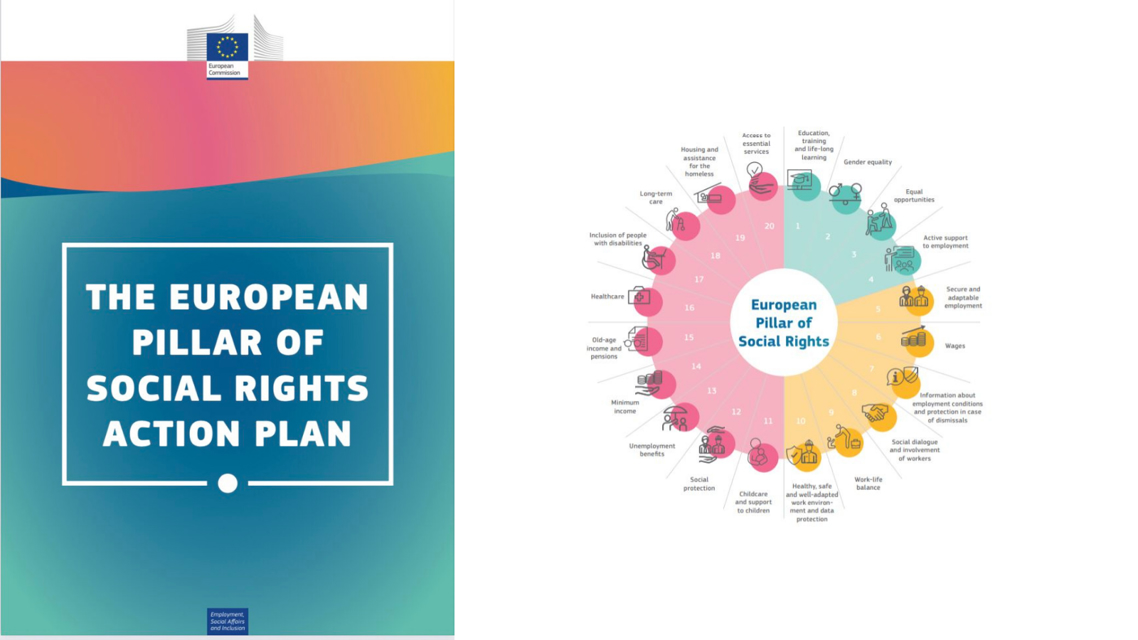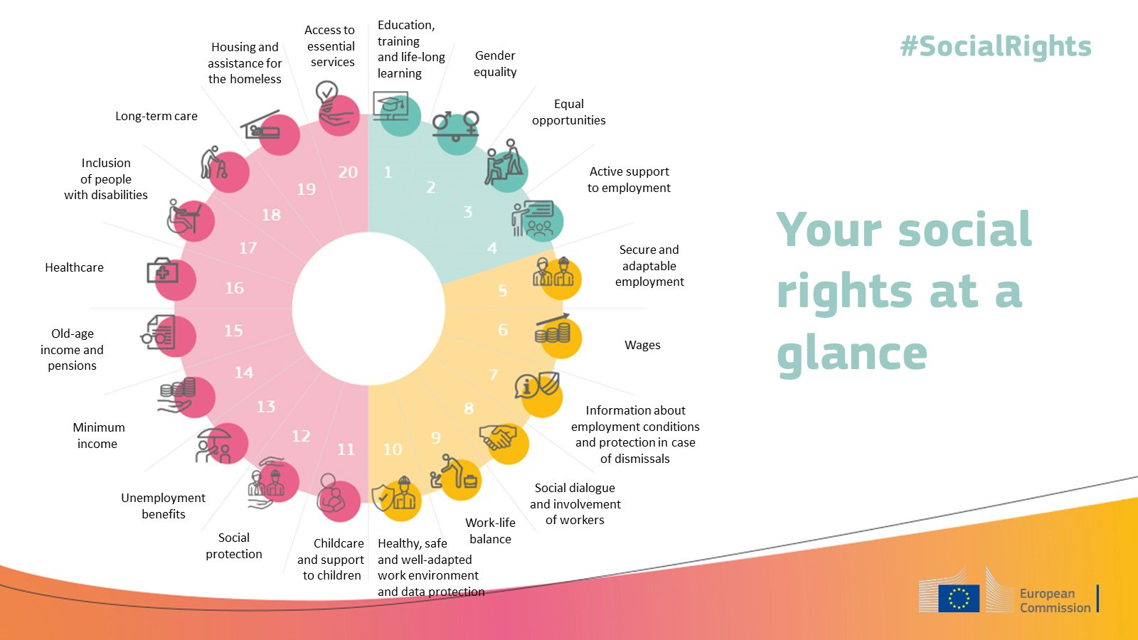The long-awaited Action Plan for the European Social Pillar is a step in the right direction, but we expected more. To successfully manage the recovery and the twin green and digital transitions from a social perspective, we need much stronger instruments than those presented in the plan.
The Action Plan published last week is the Commission’s contribution to the implementation of the 2017 Social Pillar. In the plan, the Commission sets out a series of actions to be implemented during the current mandate, as well as three headline targets for 2030:
- At least 78% of people aged 20 to 64 should be in employment
- At least 60% of all adults should participate in training every year.
- The number of people at risk of poverty or social exclusion should be reduced by at least 15 million
We agree with the aim of creating more jobs, but the target must be to create quality jobs. For a successful recovery and to manage the twin green and digital transitions, a strong social dimension is imperative. A social Europe needs ambitious social and workers’ rights and a stop to all forms of precarious work. The legislative proposal on working conditions of platform workers and the initiative to ensure collective bargaining for some categories of self-employed are welcome and necessary. But we are missing any mention of the Directive for Transparent and Predictable Working Conditions and of the legislation on minimum wages.
The Action Plan lacks commitment to a permanent reinsurance scheme to support employment. The experience with the existing SURE scheme will be simply evaluated under the Commission’s plans. On the other hand, the Commission proposes a Council Recommendation for an Effective Active Support to Employment (EASE), which is meant to support job creation and improve employment services to help people find work. This is a step in the right direction, but a Recommendation cannot guarantee an improvement of job prospects. It is a weak instrument.
An education-led recovery needs funding and social partners’ involvement:
The Action Plan focuses on training and on an education-led recovery. However, to reach the 2030 training targets, sustained public and private investments are needed. The current proposed funds (ESF+, ERASMUS+, RRF, etc.) are not enough. While the plan foresees initiatives to empower individuals to participate in training (individual learning accounts, European approach to micro-credentials), we are missing a key role of social dialogue and collective bargaining at all relevant levels in ensuring adequate training.
The Action Plan affirms the need to reinforce social dialogue at both national and European levels. It also recognises the need to extend collective bargaining coverage and prevent decreasing the organisational density of social partners. The plan falls short, however, of any concrete initiatives to improve the situation. Initiatives to improve information, consultation and workers’ participation rights are completely missing.
A just twin digital and green transition:
The Action Plan provides a good description of the impact of digitalisation on the world of work. We welcome the fact that social partners are encouraged to follow-up on their Autonomous Framework Agreement on Digitalisation. It is important, however, that the Commission also plays its part and proposes an initiative on the right to disconnect. The recommendations of the European Parliament’s own initiative report are very clear in that respect. In addition, we are expecting initiatives to regulate telework, as this form of work can be expected to stay prevalent after COVID-19.
Importantly, we are missing the link between the digital and the green twin transformation. No attempts were made to connect the European Social Pillar Action Plan and the Green Deal. However, the transition to a carbon-free economy and the digital transformation are interlinked and require a holistic and comprehensive vision.
Isabelle Barthès, industriAll Europe’s Deputy Secretary General:
“The long-awaited Action Plan for the European Social Pillar is a step in the right direction, but we expected more. It will not be enough to deliver the social Europe that we had hoped for. To successfully manage the recovery and the twin green and digital transitions from a social perspective, we need much stronger instruments than those presented in the plan. Trade unions will support the positive elements and continue to demand improvements to achieve a truly social Europe, with good quality jobs and ambitious social standards.”
Contact: Andrea Husen-Bradley (press and communication), Patricia Velicu (policy adviser)

